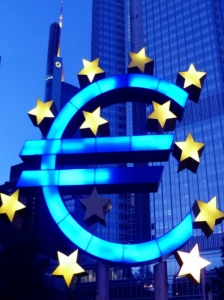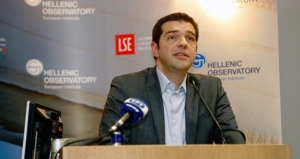Robert Wade’s recent letter to the Financial Times highlights an overlooked ‘shock’ that is negatively affecting growth prospects in Europe.
Sir, Wolfgang Münchau discusses five shocks hitting Europe simultaneously: refugees, eurozone periphery debt, the global economic downturn, Russia’s aggression in Ukraine and Volkswagen’s crimes and misdemeanours (“Five concurrent crises push Europe into the realm of chaos”, Comment, September 28).
Europe is juggling five simultaneous crises, all unforeseen shocks in different stages of development: refugees from Syria, eurozone periphery debt, a global economic downturn, Russia’s annexation of Crimea and its aftermath, and Volkswagen’s crimes and misdemeanours…
My reading of the situation is that the refugee crisis, perhaps more than any other single event, will end up reducing Germany’s room for manoeuvre. But it is not the only factor. A further constraint is the global economic slowdown. Its impact on the eurozone is not visible now, but that might soon change.
Wolfgang Münchau
 Missing from this list is a shock of another but equally important kind, which tightly constrains Europe’s ability to cope with several in Mr Münchau’s list. It is the Treaty on Stability, Cooperation and Governance, otherwise known as the fiscal compact treaty, signed by the eurozone states in 2012.
Missing from this list is a shock of another but equally important kind, which tightly constrains Europe’s ability to cope with several in Mr Münchau’s list. It is the Treaty on Stability, Cooperation and Governance, otherwise known as the fiscal compact treaty, signed by the eurozone states in 2012.
The treaty commits eurozone members to balanced budgets (the structural deficit not to exceed 0.5 per cent of GDP), public debt less than 60 per cent of gross domestic product, automatic penalties for non-compliant states and supervision by the European Commission. It thereby tightly restricts the fiscal policy space of member governments, which have already given up national control of interest rates and exchange rates.
The treaty is a recipe for a Doomsday Machine, continually generating recessionary pressure. No economic theory or empirical evidence justifies it. The stronger European states want it as an excuse to avoid taking the essential but politically unpopular steps for making a robust monetary union — a sizeable common budget and resource transfers to lagging areas; and they sold it cynically under the headline of “strengthening co-operation”.
Until the provisions of the treaty are reversed and a sizeable common budget and resource transfers introduced, the eurozone is likely to suffer recurrent recessions, making Mr Münchau’s shocks all the worse. This scenario provides good grounds for threatening a British exit from the EU. A serious threat of British exit might provide sufficient shock for European leaders to rethink the basic architecture, as the threat of a Greek exit obviously does not.

Robert H Wade
Professor of Political Economy,
London School of Economics, UK
Related Posts
  ![Canary Wharf, Isle of Dogs #8, by Veronica Aguilar, via Flickr: https://www.flickr.com/photos/lynsey_wells83/9228222263/ [Licence: CC BY-NC-ND 2.0]](https://blogs.lse.ac.uk/internationaldevelopment/files/2015/07/Canary-Wharf-Isle-of-Dogs-8-300x159.jpg) |





